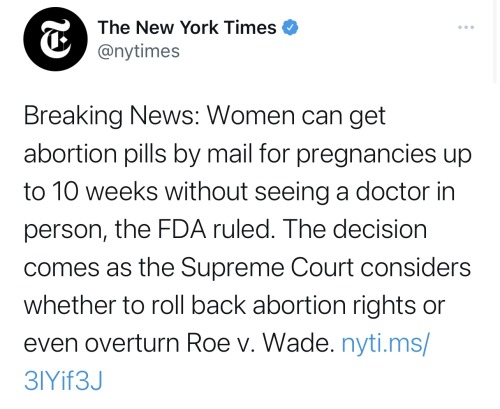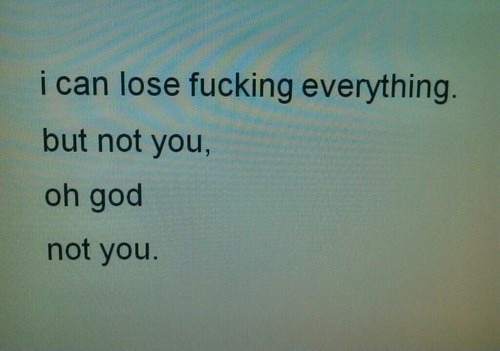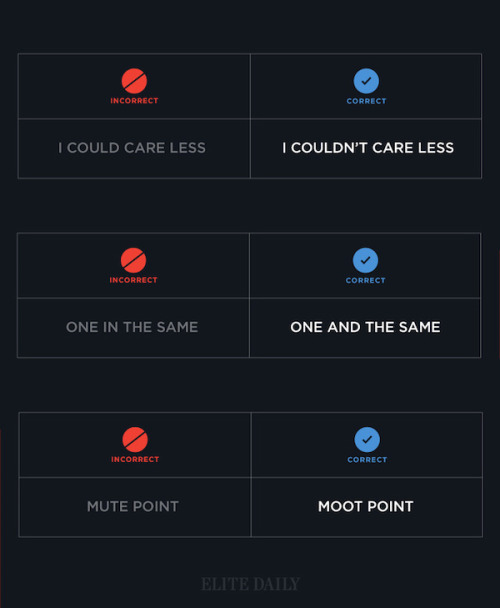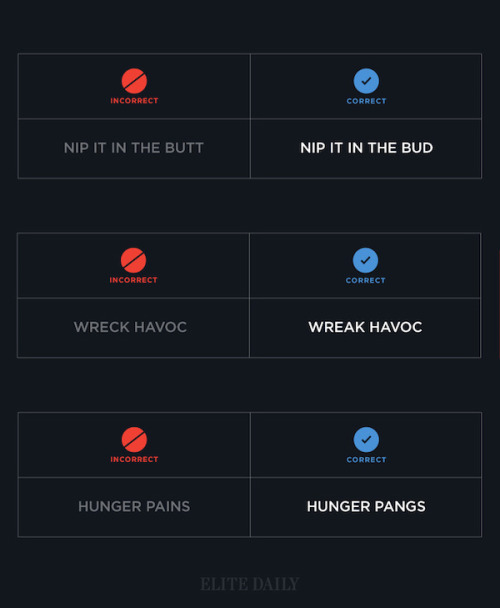To All The Writers Suffering From Depression
To all the Writers Suffering from Depression
It’s okay. Your desire to write will return. Your desire to do other things you love will come back, too. You’re not weak. You’re just having a hard time right now. Try not to add self-judgment on top of everything else. Depression is hard enough without blaming yourself for it.
We (in the US specifically) live in a productivity-obsessed, emotion-phobic culture which blames individuals for “failing” when they are anything but hyper-productive and relentlessly optimistic. This cultural narrative so pervasive that it’s difficult to see the high standards we set for ourselves for what they really are: Complete and total bullshit.
Despite the rampant cultural garbage that teaches us to interpret emotional ups and downs as an aberration, MANY writers and artists (and people in general!) struggle with depression and other mood “disorders.” It is not uncommon for us, among other things, to go through periods of hyperactivity followed by depressive episodes in which we get very little accomplished. I am not saying you shouldn’t try to alleviate your depression or work to find ways to minimize your suffering in the short or long term. I’m just saying there’s nothing wrong with you, and you aren’t alone.
I’m going to say that again:
If you’re having a hard time writing or enjoying writing right now because you’re depressed, you aren’t alone.
I wish I had some kind of magical answer. I don’t. But I do know that accepting your depression and loving yourself anyway beats the hell out of berating yourself for feeling like this. So, with that in mind, this might be all I have to offer:
I think you’re doing a great job. I’m sorry you feel like shit. I’m on your side whether you’re writing or not; whether you feel good or not; whether you’re being “productive” or not; whether you wanted to get out of bed this morning or not. You’re still a writer to me, even if you’re not writing right now. You don’t have to prove yourself to me or anyone else. I love you, and I hope you feel better soon.
More Posts from Sinedra and Others
The internet could change next week, and not in a good way
You may have heard about the efforts in Europe to reform copyright law. The debate has been ongoing in the European Parliament for months. If approved next week, these new regulations would require us to automatically filter and block content that you upload without meaningful consideration of your right to free expression.
We respect the copyrights and trademarks of others, and we take all reports seriously to ensure that your creative expression is protected. We make this clear in our Community Guidelines. There’s already a legal framework that works and is fair: Today we take down posts and media that contain allegedly infringing content when we receive a valid DMCA (Digital Millennium Copyright Act) takedown request. We also provide clear-cut ways for people to fight back if they believe their removed content was not a true violation. These instances are monitored and reported and live in our biannual transparency report.
The suggestion to use automated filters for issues of copyright is short-sighted at best and harmful at worst. Automated filters are unable to determine whether a use should be considered “fair use” under the law and are unable to determine whether a use is authorized by a license agreement. They are unable to distinguish legitimate parody, satire, or even your own personal pictures that could be matched with similar photographs that have been protected by someone else. We don’t believe that technology should replace human judgment. Tumblr is and always has been a place for creative expression, and these new regulations would only make it harder for you to express yourself with the freedom and clarity you do so now.
If you access Tumblr from Europe and want to act, you can find more information on saveyourinternet.eu.


Finally, some good news.
👉🏿 https://www.nytimes.com/2021/12/16/health/abortion-pills-fda.html
I don't want to earn my living; I want to live.
Oscar Wilde
Writing Tip #8
Write every day. That’s right, every day. You may have heard this before, maybe you haven’t. It’s a lot easier to eliminate writer’s block and to get pages dished out in a day. If this seems daunting and you don’t believe you have the time, make time. In between work, or studying, or even before class (which is what I do), just start off with what you can get and then go from there.
Don’t worry about the quality of your writing, just write what you can. That’s what editing is for later. Keep at it until you are writing at least three paragraphs or more everyday. It should be easier to start when the time comes to just sit and start typing (or writing in a notebooks) for a whole hour or more.
@janeopries, right back at you.
That random person you met online and now is a big part of your life
@sinedra
I'm not even slightly sorry.

I write to give myself strength. I write to be the characters that I am not. I write to explore all the things I’m afraid of.
Joss Whedon (via dragontameroutofcharacter)
I hate how there’s a fan culture where fan writing is seen as less valuable than fan art. Hold on with me here, I’ve got some coherent thoughts on this.
1. Creators of the original work one might be a fan of have explicitly said that they don’t look at or respond to anything written for fear of being sued. Like, shit. I don’t want to sue anyone. I want creators to tell me, “Oh, wow. You took my thing and made it amazing!” Fan art gets reblogged and commented on by creators because there’s no fear of law. Fan art gets more validation and praise than fan writing.
2. Popularity of fan writing increases when there is fan art dedicated to the piece. Fan art is popular no matter if fan writing is made from it.
3. In general, fan art is reblogged and liked more often than fan writing. Art is pretty and might occupy an “aesthetic” while writing is considered to clog up a dash with too many words.
4. Fan art is easy to engage with no matter the demographics of your audience. Writing will–at the very least–limit the age demographic. If you write for an older audience, younger folk might not be into it and vise versa.
5. And unless you’re super into supporting fan writing, you’ll probably not say anything about it. Fan art gets the bare minimum of “gorgeous.”
How to Detect Text Written by AI
Once my mutuals reminded me not to let fear take over and to get out of my own head, I did. And when I did, I realized something—those who are feeding authors’ fics into these notoriously unreliable AI detectors are actually helping these companies by giving them more data. And most of these companies? They also have their own AI content generation tools, which means they are using the samples of the writing of from those authors’ to improve their own AI generation tools.
So now, I’m not just scared—I’m scared and mad.
Instead of making unproductive call-out posts that don’t actually help the community recognize AI-generated text, let’s do something useful. Let’s talk about ways you can be empowered as a reader to spot AI-generated content.
There is no fool proof method to figure out for sure if a text is AI generated, unless you are literally physically sitting with the writer watching them write like they are a zoo animal.
AI detectors are unreliable and inconsistent. Plus, with how quickly AI-generated content is evolving, these tools are constantly lagging behind, making them outdated and even less effective over time.
Thus far, the best AI detection is YOU. It isn’t easy at first, but the research shows that you can learn how to do this.
One article from the MIT Technology Review (2019) states:
Another study found that untrained humans were able to correctly spot text generated by GPT-3 only at a level consistent with random chance. The good news is that people can be trained to be better at spotting AI-generated text, Ippolito says. She built a game to test how many sentences a computer can generate before a player catches on that it’s not human, and found that people got gradually better over time. “If you look at lots of generative texts and you try to figure out what doesn’t make sense about it, you can get better at this task,” she says. One way is to pick up on implausible statements, like the AI saying it takes 60 minutes to make a cup of coffee.
Fun fact: This article has the journalist submitting her own work to various AI detectors, one of them being Originality.AI, which indicated her writing had a 50-50 split on being AI and human.
One of the problems with these large language models (LLMs), as this article from Capitol Technology University points out, is that it has made AI generated text more complex, making it harder to tell it apart from human writing. But, they share some signs you can look for, as described from their article below:
Inconsistencies and repetition: Occasionally, AI produces nonsensical or odd sentences which can be a clear indicator of AI-generated text. Abrupt shifts in tone, style, or topic can point to AI that is struggling to maintain coherent ideas. Whereas humans often vary structure to create a better flow, repeated phrases or sentence structures can point to AI relying more on memorized patterns. Occasionally, AI produces nonsensical or odd sentences which can be a clear indicator of AI-generated text.
Context and content: If the text seems to be unable to grasp the larger context of the writing, is missing the point entirely, or references specific details without appropriate context, it could be AI.
Does that mean all inconsistencies, excessive repetition, or overly descriptive writing automatically indicate AI-generated text? No, absolutely not. Writing styles vary, and many human writers naturally have quirks like these.
This article from Forbes (2024) identified 5 ways to help identify AI generated content, but I feel these 3 specific ones best apply to fiction and fanfics:
Language Patterns: AI generated text tends to lack emotional subtlety, be overly formal, or use complex words, leading to the sentences sounding stiff and not flowing well. Alternatively, the over use of cliches. Consistency Issues: AI generated text tends to struggle with narrative details, leading to abrupt changes in the story. For example an abrupt change in the description of a setting without explanation. Unusual Language Errors: Sometimes AI generated text uses odd and unusual phrases that feel out of place.
Again, does this automatically mean that writing lacking emotional subtlety or being overly formal is AI-generated? No, not at all. Writing styles vary, and some authors naturally have a more formal tone or a direct approach to storytelling.
If I find a story that I think is AI-generated, what should I do?
1. Pause and Assess – Don't Jump to Conclusions
AI-generated text can sometimes be hard to distinguish from human writing, and many of the so-called “signs” of AI can also be just someone’s writing style or someone being new to writing. Before assuming a fic is AI-generated, take a step back and look at it critically.
Does it actually feel off in a way that suggests AI (such as major consistency errors, repetitive phrases, or nonsensical sentences)?
Or does it just have a different writing style than you’re used to?
2. Don’t Rely on AI Detectors
As shown in multiple studies and real-world examples, AI detectors are not reliable. They are inconsistent, often outdated, and can flag even completely human-written work as AI. Using them as definitive proof, even with the above information does more harm than good.
Also, some of these AI detectors programs also have AI generation programs. You are literally providing more data to these programs to help improve generate AI text.
If an AI detection program does not appear to have a a sister program that generate AI content, ask yourself:
Could this company be mangaged by a parent company that DOES have an AI generated program?
Have you read the terms and conditions to agree to use this AI detection program? If not, have you considered where does the data you have it analyze go? Is it stored and sold to 3rd parties to be used to improve AI generated content programs?
3. Consider Reaching Out to the Author First
If you still have doubts, and you feel it’s appropriate, you could politely reach out to the author. Instead of accusing them, ask about their writing process or how they developed the story. Most human writers love to talk about their inspiration, research, and creative choices.
4. Avoid Public Call-Outs
Unless you have strong, irrefutable proof (which is very hard to get), publicly accusing someone of using AI can do serious harm—both to the writer and to the community as a whole. False accusations drive real writers away from sharing their work.
5. If You’re Concerned About AI in Creative Spaces, Advocate for Constructive Discussions
Instead of call-outs and AI detectors, push for conversations on how to navigate AI in fandoms and creative writing spaces in a way that doesn’t rely on fear or false accusations. Encourage transparency, but also respect that writers shouldn’t have to prove their humanity just to share their work.
Thank you and I will now go back to playing in my little section of the dragon age sandbox where I make Solas kiss Lavellan.

-
 antihell liked this · 1 week ago
antihell liked this · 1 week ago -
 daemonoferror reblogged this · 2 weeks ago
daemonoferror reblogged this · 2 weeks ago -
 daemonoferror liked this · 2 weeks ago
daemonoferror liked this · 2 weeks ago -
 kris-mage-fics reblogged this · 2 weeks ago
kris-mage-fics reblogged this · 2 weeks ago -
 dianamagritte liked this · 4 weeks ago
dianamagritte liked this · 4 weeks ago -
 sebentinuminis liked this · 4 weeks ago
sebentinuminis liked this · 4 weeks ago -
 rambling-tam reblogged this · 4 weeks ago
rambling-tam reblogged this · 4 weeks ago -
 rambling-tam liked this · 4 weeks ago
rambling-tam liked this · 4 weeks ago -
 fanfictionwritterwannabe reblogged this · 1 month ago
fanfictionwritterwannabe reblogged this · 1 month ago -
 badassxbirdy liked this · 1 month ago
badassxbirdy liked this · 1 month ago -
 tooattached2fictionalcharacters reblogged this · 1 month ago
tooattached2fictionalcharacters reblogged this · 1 month ago -
 frsoutherlandauthor reblogged this · 1 month ago
frsoutherlandauthor reblogged this · 1 month ago -
 weirdisbetterthanormal reblogged this · 1 month ago
weirdisbetterthanormal reblogged this · 1 month ago -
 zahlenfreak reblogged this · 2 months ago
zahlenfreak reblogged this · 2 months ago -
 zahlenfreak liked this · 2 months ago
zahlenfreak liked this · 2 months ago -
 disastrid reblogged this · 2 months ago
disastrid reblogged this · 2 months ago -
 disastrid liked this · 2 months ago
disastrid liked this · 2 months ago -
 bardass liked this · 2 months ago
bardass liked this · 2 months ago -
 inthemarginalized reblogged this · 2 months ago
inthemarginalized reblogged this · 2 months ago -
 jay-avian liked this · 2 months ago
jay-avian liked this · 2 months ago -
 sweetbutterbliss reblogged this · 2 months ago
sweetbutterbliss reblogged this · 2 months ago -
 thehylianbatman reblogged this · 2 months ago
thehylianbatman reblogged this · 2 months ago -
 cursed-sun reblogged this · 2 months ago
cursed-sun reblogged this · 2 months ago -
 lone-chicken reblogged this · 2 months ago
lone-chicken reblogged this · 2 months ago -
 lone-chicken liked this · 2 months ago
lone-chicken liked this · 2 months ago -
 declawedwildcat liked this · 2 months ago
declawedwildcat liked this · 2 months ago -
 lostlegendaerie liked this · 2 months ago
lostlegendaerie liked this · 2 months ago -
 lostlegendaerie reblogged this · 2 months ago
lostlegendaerie reblogged this · 2 months ago -
 solsticelosthermind reblogged this · 2 months ago
solsticelosthermind reblogged this · 2 months ago -
 fluffypeonyperfection liked this · 2 months ago
fluffypeonyperfection liked this · 2 months ago -
 queeenaleex liked this · 2 months ago
queeenaleex liked this · 2 months ago -
 instantlyshykitty liked this · 2 months ago
instantlyshykitty liked this · 2 months ago -
 alora-vlinder reblogged this · 2 months ago
alora-vlinder reblogged this · 2 months ago -
 loveisbananananas liked this · 2 months ago
loveisbananananas liked this · 2 months ago -
 mutantenfisch reblogged this · 2 months ago
mutantenfisch reblogged this · 2 months ago -
 mutantenfisch liked this · 2 months ago
mutantenfisch liked this · 2 months ago -
 eridanidreams reblogged this · 2 months ago
eridanidreams reblogged this · 2 months ago -
 the-scaredy-crow reblogged this · 2 months ago
the-scaredy-crow reblogged this · 2 months ago -
 vicwriting liked this · 2 months ago
vicwriting liked this · 2 months ago -
 mauannacreates reblogged this · 2 months ago
mauannacreates reblogged this · 2 months ago -
 eridanidreams liked this · 2 months ago
eridanidreams liked this · 2 months ago -
 ch3rrybbie liked this · 2 months ago
ch3rrybbie liked this · 2 months ago -
 interplanet--janet reblogged this · 2 months ago
interplanet--janet reblogged this · 2 months ago -
 fangbangerghoul reblogged this · 2 months ago
fangbangerghoul reblogged this · 2 months ago -
 fangbangerghoul liked this · 2 months ago
fangbangerghoul liked this · 2 months ago -
 eirapparent reblogged this · 2 months ago
eirapparent reblogged this · 2 months ago -
 senmutthebuilder reblogged this · 2 months ago
senmutthebuilder reblogged this · 2 months ago -
 esploratore324 liked this · 2 months ago
esploratore324 liked this · 2 months ago

A simple blog dealing with writing, books, and authors. Writing blog is Sinedras-Snippets. Icon and header by miel1411
164 posts



